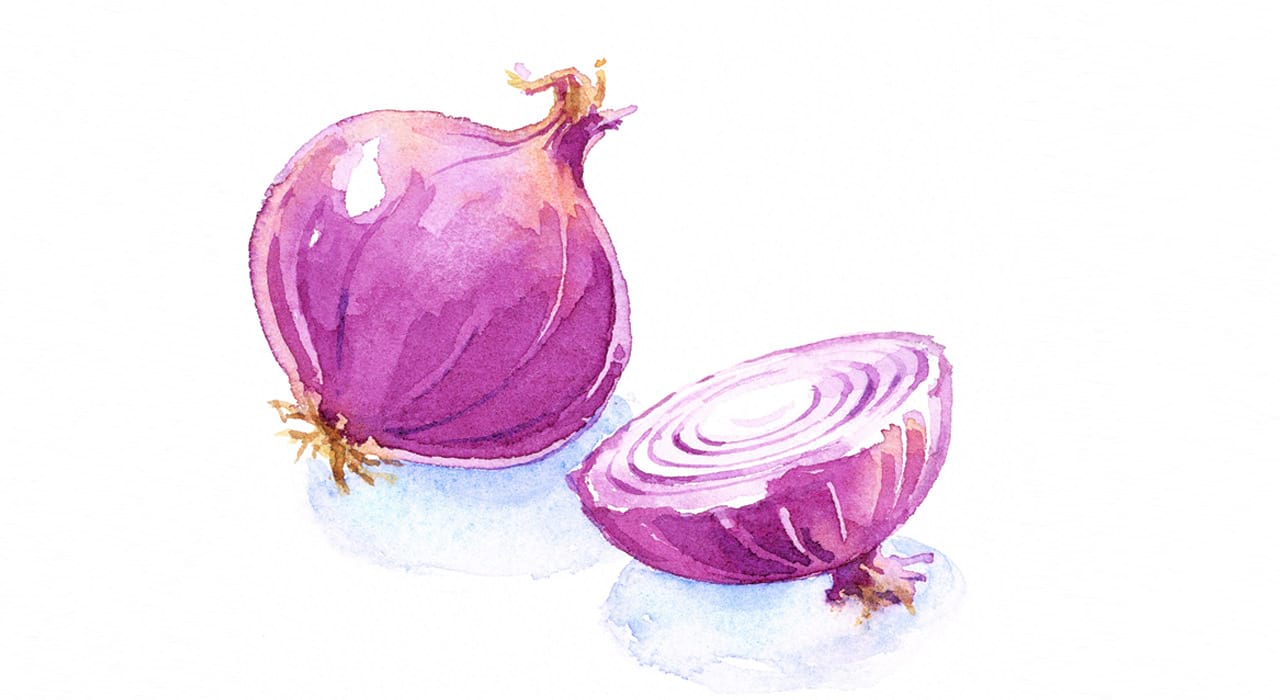By Harriet Mallinson | Published on June 22, 2017
They may make your eyes water and your breath smell, but including more onions in your diet could be the key to battling cancer.
The multi-layered vegetable is not normally touted as a superfood but in fact it contains one of the highest concentrations of the flavonoid quercetin, an antioxidant, and might soon be packed into a pill.
Antioxidants serve to scavenge particles in the body known as free radicals which damage cell membranes, tamper with DNA and even cause cell death.
Researchers at the University of Guelph in Ontario, Canada tested five onion types grown in Ontario and discovered the Ruby Ring onion variety came out on top.
Red onions in particular contain high amounts of anthocyanin, which enriches the scavenging properties of quercetin molecules.
“Anthocyanin is instrumental in providing color to fruits and vegetables, so it makes sense that the red onions, which are darkest in color, would have the most cancer-fighting power,†says lead study author, Abdulmonem Murayyan
Published in Food Research International, the study involved placing colon cancer cells in direct contact with quercetin extracted from the five onion varieties.
“We found onions are excellent at killing cancer cells,†said Murayyan. “Onions activate pathways that encourage cancer cells to undergo cell death. They promote an unfavorable environment for cancer cells and they disrupt communication between cancer cells, which inhibits growth.â€
– RELATED: How Good Is Aloe Vera For You? –
The researchers have also recently determined onions are effective at killing breast cancer cells.
“The next step will be to test the vegetable’s cancer-fighting powers in human trials,†said Murayyan.
These findings follow a recent study by the researchers on a new extraction technique that eliminates the use of chemicals, making the quercetin found in onions more suitable for consumption.
“Other extraction methods use solvents that can leave a toxic residue which is then ingested in food,†said co-author Suresh Neethirajan.
“This new method that we tested to be effective only uses super-heated water in a pressurized container,†he said. “Developing a chemical-free extraction method is important because it means we can use onion’s cancer-fighting properties in nutraceuticals and in pill form.â€
So, while we currently might just see red onion as a garnish to our burgers or something to mix in with tuna mayo, the researchers expect onion extract will eventually be added to food products such as juice or baked goods and be sold in pill form as a type of natural cancer treatment.
Harriet is Editor of MACROS and perfectly capable of eating an entire log of goat’s cheese in one sitting.

